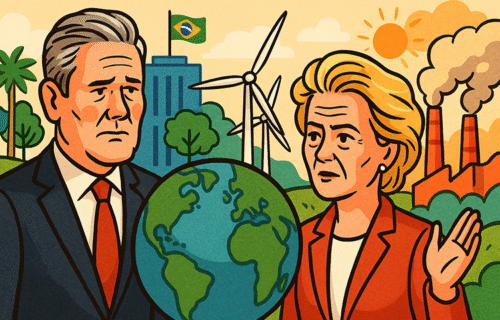Keir Starmer and Ursula von der Leyen were present at the climate summit but did not hold direct talks, highlighting ongoing uncertainty over the next stage of UK–EU relations.
UK Prime Minister Keir Starmer and European Commission President Ursula von der Leyen both travelled to Brazil for the COP30 climate conference, but the gathering ended without a bilateral discussion between the two leaders.
People in government circles say the UK attempted to secure a short meeting with von der Leyen while both were on site. The planned conversation was expected to touch on ongoing negotiations between London and Brussels, including the financial element of possible future cooperation between the two sides. Those familiar with diplomatic planning say the European Commission pointed to a full agenda at the summit as the reason a meeting could not be secured.
The European Commission’s public diary for the summit lists climate finance sessions, speeches and several meetings with heads of state, though none with the UK prime minister. Downing Street’s communication on the conference highlights Starmer’s attendance and briefings with other leaders, but also makes no mention of talks with von der Leyen.
Both sides have avoided commenting directly on whether a meeting was formally requested or declined.
The lack of a meeting at COP30 does not change the overall direction of UK–EU relations, but it illustrates how sensitive the current phase of talks has become.
The UK government has made improving relations with the EU a priority, particularly in areas such as defence, industry and scientific cooperation. In Brussels, there is recognition that closer ties are useful — but only if both sides contribute financially and follow agreed rules. The EU is currently reviewing how non-member countries can participate in certain programmes, and London is pushing for access that goes beyond the trade agreement signed after Brexit.
A short conversation in Brazil may not have produced a breakthrough, but it could have helped clear the air. Instead, the absence of dialogue leaves technical negotiators to handle an increasingly political issue without the benefit of direct leadership contact.
Observers expect more structured talks in the coming months. Whether that leads to a more stable partnership — or to public disagreements over money — will depend on how much flexibility both sides are willing to show.
Source: EC, Gov.uk, FT, Reuters and CIJ EUROPE Analysis Team
